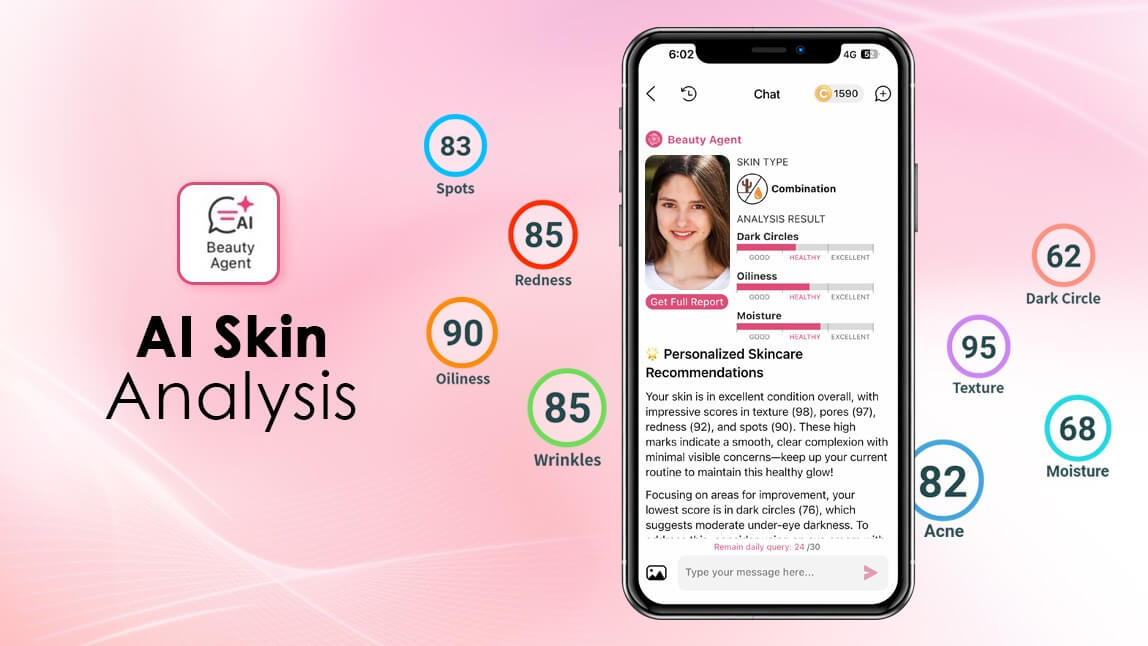Artificial intelligence (AI) is revolutionizing dermatology in 2025 by offering personalized skincare solutions, early disease detection, and real-time skin monitoring. While AI tools enhance accuracy and accessibility, they act as supplements to—not replacements for—professional dermatologists, promising a future of hybrid, data-driven skin care.
The skincare and dermatology fields are undergoing a transformation fueled by rapid AI advancements in 2025. Artificial intelligence-powered technologies now enable hyper-personalized skincare regimens, early detection of serious skin conditions, and continuous skin health monitoring—all accessible through smartphones and digital platforms. Dermatologists are increasingly integrating AI tools to augment their diagnostic precision and treatment customization, while consumers benefit from tailored recommendations driven by real-time skin analysis.
Modern AI methodologies utilize extensive clinical and dermatological image libraries alongside machine learning algorithms to analyze skin conditions such as melanoma, psoriasis, and atopic dermatitis. These capabilities allow early identification of potential skin cancers and skin disorders, improving outcomes through timely interventions. Moreover, AI combines genetic, environmental, and lifestyle factors for precision skincare formulations, creating dynamic routines that adapt to an individual’s changing skin needs over time.
The major promise of AI in dermatology is the ability to provide personalized and adaptive care at scale. Apps like AI-Dermatologist and tools developed by companies like Google Health and L’Oreal offer consumers and clinicians intelligent analysis powered by vast datasets. These technologies not only assist in diagnosis but also educate users about their skin health, expanding access where dermatologists may be scarce.
Key highlights include:
Personalized Skincare: AI develops customized treatment regimes using an individual’s skin type, genetics, hydration levels, pigmentation, and environmental exposure, resulting in highly targeted and effective skin care.
Early Detection: AI-driven computer vision and dermatoscopic analysis help identify malignant skin lesions and other disorders faster and with greater accuracy than many traditional methods.
Continuous Monitoring: Smartphone apps use AI to track changes in skin texture, acne severity, and aging signs, providing ongoing feedback and adjustments to care routines.
Hybrid Care Models: AI augments dermatologists’ expertise by providing detailed analyses and second opinions but is not a replacement for professional medical advice, especially for serious conditions.
Future Trends: Enhanced AI training datasets, integration with telemedicine, wearable AI skin monitors, and stricter regulatory standards are shaping the future of AI-supported dermatology.
While AI offers notable advantages in making skin care more accessible, affordable, and personalized, experts emphasize that these digital tools are complementary aids. Critical or complex skin issues still require expert human diagnosis and treatment. The fusion of AI’s computational power with dermatologists’ clinical judgement foresees a future of collaborative skin health management that benefits patients worldwide.
Sources: Adhikari Lifeline, ScienceDirect, NDTV, Economic Times, Angel One, AI-Dermatologist App, Google Health, Cetaphil

